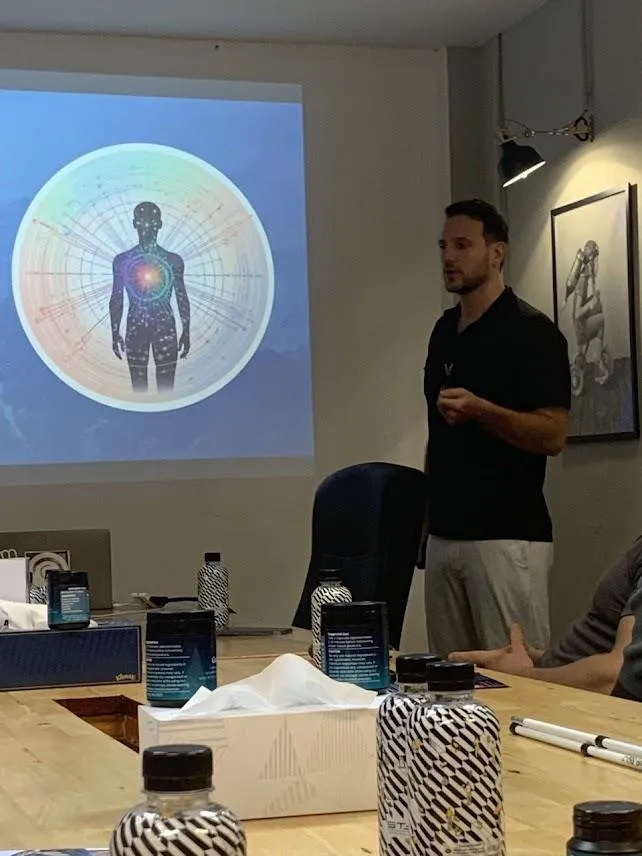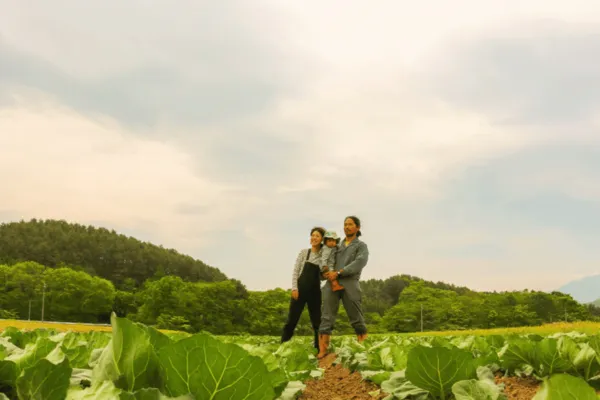Do you have a calling?
Are you looking for yourself?
Henosis is founded upon the idea that every human being in unique and has a purpose. You have aspects that make you so different to every other human on the planet, yet such deep similarities that show we're all the same.
Origin Story of Henosis
The Greek word henosis refers to the process of achieving a state of oneness or unity with the divine. This concept has been central to many mystical and philosophical traditions throughout history, particularly in ancient Greece.
The term henosis comes from the Greek word ἕνωσις, which means "union" or "merging." It was used by several ancient Greek philosophers, including Plotinus and Proclus, to describe the goal of mystical practice.
For these philosophers, the goal of mystical practice was to transcend the limitations of the physical world and achieve a direct experience of the divine.
This experience was seen as a merging or union with the divine, a state of consciousness in which the individual and the divine were no longer separate entities but were united as one.
In some mystical traditions, henosis was seen as a gradual process of spiritual development, in which the individual gradually purifies their mind and body and becomes more attuned to the divine. In others, it was seen as a sudden, spontaneous experience that could occur at any time.
The concept of henosis was also central to many ancient Greek religious practices, particularly in the mystery religions. These were secretive, initiatory cultures that focused on the direct experience of the divine through ritual practices, often involving ecstatic states of consciousness.
Henosis has also been an important concept in the history of Christianity, particularly in the Eastern Orthodox tradition. In this tradition, henosis is seen as the ultimate goal of spiritual practice, a state of union with God that is achieved through prayer, contemplation, and asceticism.

Overall, the concept of henosis is a complex and multifaceted one that has played a central role in many mystical and philosophical traditions throughout history. Whether seen as a gradual process of spiritual development or a sudden, spontaneous experience, it represents the human longing for a direct experience of the divine, and the recognition that this experience lies at the heart of our deepest aspirations and desires.

HENOSIS PURPOSE
Henosis was formed to hold space for the lost soul, questioning their current reality, and to provide alternative information and experiences that may serve as the launching pad for their new life.

HENOSIS VISION
We believe that all humans deserve to live a life of fulfillment and to participate in the raising of the vibrational frequency of earth to expand consciousness.

HENOSIS MISSION
Henosis assists with the shedding of our limiting beliefs, overcoming our emotional and energetic blocks and reprogramming harmful habits and biases. We develop educational information, events and activities to promote ancient wisdom, alternative medicines, new age science and holistic healing modalities to empower the individual to discover their own limitless possibilities and increase awareness.
What the greats say about Henosis over Millenia
Within the word henosis lies a powerful invitation to experience the unity and oneness that exists within and around us, to dissolve the illusion of separateness and awaken to the truth of our interconnectedness with all of life.
Plato
Henosis is the transcendence of the self, the merging of the individual with the divine, and the attainment of spiritual enlightenment.
Eckhart Tolle
The experience of henosis is a mystical journey, a quest for the ultimate truth and the ultimate reality.
Carl Jung
In the state of henosis, the individual ego dissolves into the infinite, and the soul merges with the divine.
Deepak Chopra
Henosis is the realisation that we are all interconnected, that we are all part of a greater whole, and that we are all one.
Alan Watts
In the state of henosis, the boundaries between self and other dissolve, and the individual becomes one with the universe and all that exists.
Sri Ramana Maharshi
Henosis is the state of being in which one transcends the limitations of the ego and realises the true nature of the self as part of the divine.
Buddha
Henosis is the ultimate liberation, the release from the bonds of the ego and the attainment of eternal bliss and peace.
Henosis
Henosis represents the journey of transcending individuality, merging with the divine, and awakening to the unity that connects all of existence.
Interested in changing your life?
Check out some of our free articles
HEALTH & WELLBEING

Power Chinese Proverb "We'll See"
The Chinese culture is known for its rich traditions, values, and proverbs that have stood the test of time. These proverbs have been passed down through generations and are still relevant today. One such proverb is "We'll see," which is a powerful statement that encapsulates the Chinese approach to life.
In Chinese culture, the concept of "We'll see" or "看吧" (kàn ba) is more than just a phrase. It represents a mindset of flexibility, patience, and adaptability in the face of uncertainty. It acknowledges that the future is unpredictable and that outcomes are not always guaranteed. Instead of resisting this reality, the Chinese embrace it and are comfortable with the unknown.
This can be used to help control our emotions, rest easy with the unknown around the corner, or be at peace with wherever you are in life, because it is meant to me.
Chinese Prover "We'll See"
Once upon a time, there was an old farmer who had worked his crops for many years.
One day his horse ran away. Upon hearing the news, his neighbors came to visit. “Such bad luck,” they said sympathetically, “you must be so sad.”
“We’ll see,” the farmer replied.
The next morning the horse returned, bringing with it two other wild horses.
“How wonderful,” the neighbors exclaimed! “Not only did your horse return, but you received two more. What great fortune you have!”
“We’ll see,” answered the farmer.
The following day, his son tried to ride one of the untamed horses, was thrown, and broke his leg. The neighbors again came to offer their sympathy on his misfortune. “Now your son cannot help you with your farming,” they said. “What terrible luck you have!”
“We’ll see,” replied the old farmer.
The following week, military officials came to the village to conscript young men into the army. Seeing that the son’s leg was broken, they passed him by. The neighbors congratulated the farmer on how well things had turned out. “Such great news. You must be so happy!”
The man smiled to himself and said once again.
“We’ll see,”
Of course, the concept of "We'll see" is not without its limitations. It's important to have goals and to work towards them, even if the outcome is not guaranteed. It's also important to recognise that sometimes, waiting and doing nothing is the best course of action and in other cases, it's important to take risks and make bold decisions, even when the outcome is uncertain.
In conclusion, the Chinese proverb "We'll see" represents a mindset of flexibility, patience, and adaptability in the face of uncertainty. It's a valuable lesson that we can all learn from, regardless of our cultural background. By embracing uncertainty and being open to change, we can all become more resilient and better equipped to face the challenges of life.
PSYCHOLOGY

Power Chinese Proverb "We'll See"
The Chinese culture is known for its rich traditions, values, and proverbs that have stood the test of time. These proverbs have been passed down through generations and are still relevant today. One such proverb is "We'll see," which is a powerful statement that encapsulates the Chinese approach to life.
In Chinese culture, the concept of "We'll see" or "看吧" (kàn ba) is more than just a phrase. It represents a mindset of flexibility, patience, and adaptability in the face of uncertainty. It acknowledges that the future is unpredictable and that outcomes are not always guaranteed. Instead of resisting this reality, the Chinese embrace it and are comfortable with the unknown.
This can be used to help control our emotions, rest easy with the unknown around the corner, or be at peace with wherever you are in life, because it is meant to me.
Chinese Prover "We'll See"
Once upon a time, there was an old farmer who had worked his crops for many years.
One day his horse ran away. Upon hearing the news, his neighbors came to visit. “Such bad luck,” they said sympathetically, “you must be so sad.”
“We’ll see,” the farmer replied.
The next morning the horse returned, bringing with it two other wild horses.
“How wonderful,” the neighbors exclaimed! “Not only did your horse return, but you received two more. What great fortune you have!”
“We’ll see,” answered the farmer.
The following day, his son tried to ride one of the untamed horses, was thrown, and broke his leg. The neighbors again came to offer their sympathy on his misfortune. “Now your son cannot help you with your farming,” they said. “What terrible luck you have!”
“We’ll see,” replied the old farmer.
The following week, military officials came to the village to conscript young men into the army. Seeing that the son’s leg was broken, they passed him by. The neighbors congratulated the farmer on how well things had turned out. “Such great news. You must be so happy!”
The man smiled to himself and said once again.
“We’ll see,”
Of course, the concept of "We'll see" is not without its limitations. It's important to have goals and to work towards them, even if the outcome is not guaranteed. It's also important to recognise that sometimes, waiting and doing nothing is the best course of action and in other cases, it's important to take risks and make bold decisions, even when the outcome is uncertain.
In conclusion, the Chinese proverb "We'll see" represents a mindset of flexibility, patience, and adaptability in the face of uncertainty. It's a valuable lesson that we can all learn from, regardless of our cultural background. By embracing uncertainty and being open to change, we can all become more resilient and better equipped to face the challenges of life.
HAPPINESS

Power Chinese Proverb "We'll See"
The Chinese culture is known for its rich traditions, values, and proverbs that have stood the test of time. These proverbs have been passed down through generations and are still relevant today. One such proverb is "We'll see," which is a powerful statement that encapsulates the Chinese approach to life.
In Chinese culture, the concept of "We'll see" or "看吧" (kàn ba) is more than just a phrase. It represents a mindset of flexibility, patience, and adaptability in the face of uncertainty. It acknowledges that the future is unpredictable and that outcomes are not always guaranteed. Instead of resisting this reality, the Chinese embrace it and are comfortable with the unknown.
This can be used to help control our emotions, rest easy with the unknown around the corner, or be at peace with wherever you are in life, because it is meant to me.
Chinese Prover "We'll See"
Once upon a time, there was an old farmer who had worked his crops for many years.
One day his horse ran away. Upon hearing the news, his neighbors came to visit. “Such bad luck,” they said sympathetically, “you must be so sad.”
“We’ll see,” the farmer replied.
The next morning the horse returned, bringing with it two other wild horses.
“How wonderful,” the neighbors exclaimed! “Not only did your horse return, but you received two more. What great fortune you have!”
“We’ll see,” answered the farmer.
The following day, his son tried to ride one of the untamed horses, was thrown, and broke his leg. The neighbors again came to offer their sympathy on his misfortune. “Now your son cannot help you with your farming,” they said. “What terrible luck you have!”
“We’ll see,” replied the old farmer.
The following week, military officials came to the village to conscript young men into the army. Seeing that the son’s leg was broken, they passed him by. The neighbors congratulated the farmer on how well things had turned out. “Such great news. You must be so happy!”
The man smiled to himself and said once again.
“We’ll see,”
Of course, the concept of "We'll see" is not without its limitations. It's important to have goals and to work towards them, even if the outcome is not guaranteed. It's also important to recognise that sometimes, waiting and doing nothing is the best course of action and in other cases, it's important to take risks and make bold decisions, even when the outcome is uncertain.
In conclusion, the Chinese proverb "We'll see" represents a mindset of flexibility, patience, and adaptability in the face of uncertainty. It's a valuable lesson that we can all learn from, regardless of our cultural background. By embracing uncertainty and being open to change, we can all become more resilient and better equipped to face the challenges of life.

